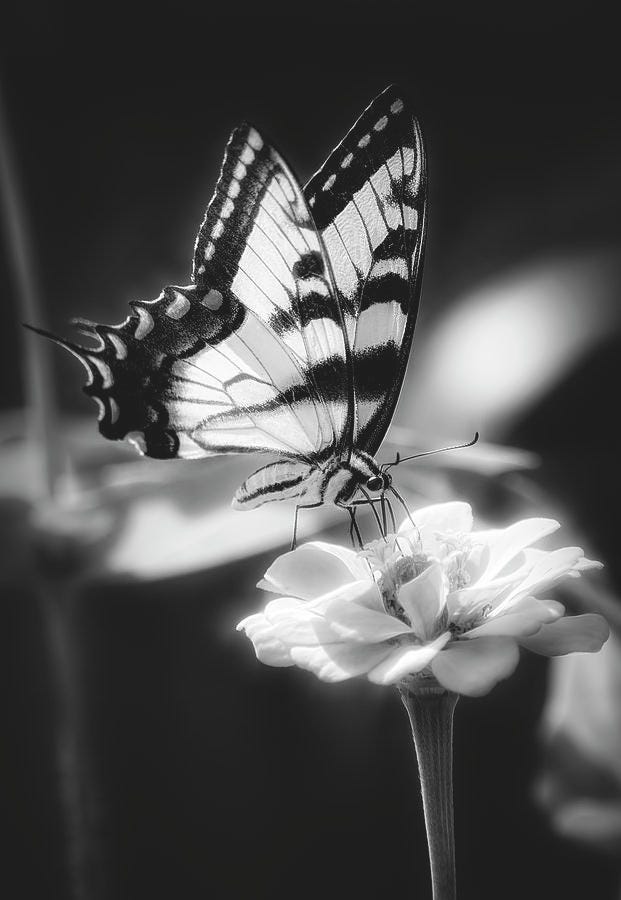The Deeper Mechanics of Intuition
Why effortless action cannot be achieved through practice, learning or striving
“As I read your passionate "DMV" story, I thought about the energetics of the exchange of communication. "Know when to hold 'em, know when to fold 'em." Like a poker game you have to play the cards dealt to you in relation to those held by others in the game.
Krishnamurti: “It is no measure of health to be well adjusted to a profoundly sick society.”
Being able to cultivate a sense of the Tao of the moment, the "what is", and to instinctively align with the energy flow to achieve an effortless balance seems to be the key. You instinctively sensed that you needed to apply some assertive energy to the clerk's passive-aggressive stance and clear a path through the impasse of inertia.
Yes, it was a disruption to the prevailing cultural logjam of a natural flow of energy, but skillfully modulated, it did shatter the illusion of an immutable status quo and a release of the natural flow of energy and realistic communication. I have also used a more Yin receptive stance against an actively aggressive opponent to again balance out the energetic flow of the relationship while allowing the 'aggressor' to feel securely dominate.
Sensing "what is" is a subconscious art of awareness and balance, an intuitive "feel" for just the right energetic response in context with the swirls of energy of the moment.”
.
***
.
While I am on this trend of narrating my Japan stories, here is another one I thought I would share with you that I believe echoes your beautifully articulated point. It demonstrates a very different approach to “intuitively feeling for the right energetic response” than the one I illustrated in my article ‘The Courage to Simply Be’:
When my wife became pregnant with our second child, we were living in a small town in Hokkaido, Japan’s snowy northernmost prefecture. The closest city to us was Asahikawa - about an hour’s drive away. It was here that we arranged to have our baby delivered at a private maternity hospital in which the doctors spoke some English.
With our first daughter, who was born in Canada, our intention had been to have a home birth with our midwife present. However, our daughter shifted into a footling breach position which presented as a high-risk delivery due to cord prolapse. As a result, my wife was scheduled to have a c-section. Although, we were disappointed by this outcome, we were determined to make our daughter’s transition into the world as smooth and nurturing as possible. As my wife would be on the operating table and unable to hold the newborn immediately upon delivery, I requested to be in the operating room with her for ‘skin-to-skin’ care. I was given a gown with an open front, and when my daughter was handed to me, I immediately held her small naked form against my own bare chest and enveloped her in my arms. There she remained for the next hour until my wife was out of surgery and could hold our baby for the first time.
For our second daughter’s birth, we were told by Japanese doctors that it was their policy not to risk a natural birth if a previous child had been delivered by c-section. Japan’s medical establishment tends to be highly risk averse and although most American doctors would support a natural birth once the uterus has had sufficient time to heal following a c-section, Japanese doctors prefer to avoid it. And so, we once again resigned ourselves to the idea of yet another birth by surgical means. However, we were determined that our second daughter would be brought into the world with the same love and warmth that our first was.
There was only one problem.
The Japanese physicians informed us, emphatically, right in the first trimester, that this would be impossible as fathers were not allowed in the operating room as a matter of policy. And there is nothing as immutable as a Japanese organizational policy.
This was a devastating outcome for my wife and I as we both believed, very deeply, that birth can be the first significant imprint of trauma on a human psyche - and the environment, the method of delivery and the immediate aftermath of a child’s introduction to this world plays a huge role in how they will perceive the world and themselves in their lifetime. Will they come in feeling terrified, unsafe and alone or will they be born into a feeling of warmth, nourishment and a sense of existential familiarity? While we could not control the environment, nor the method of delivery, we had hoped to somehow influence at least the immediate aftermath. However, our options to do so appeared all but non-existent.
And so began our attitude of Wei Wu Wei (meaning ‘effortless action’ or quite literally ‘doing not-doing’), even though we weren’t conscious of it at the time. We didn’t plan it or intend it. It just became the way we approached the issue. We simply let it be, spurred by an intuition that, somehow, all would be well in the end.
Keep reading with a 7-day free trial
Subscribe to Dark Knight of the Soul to keep reading this post and get 7 days of free access to the full post archives.


